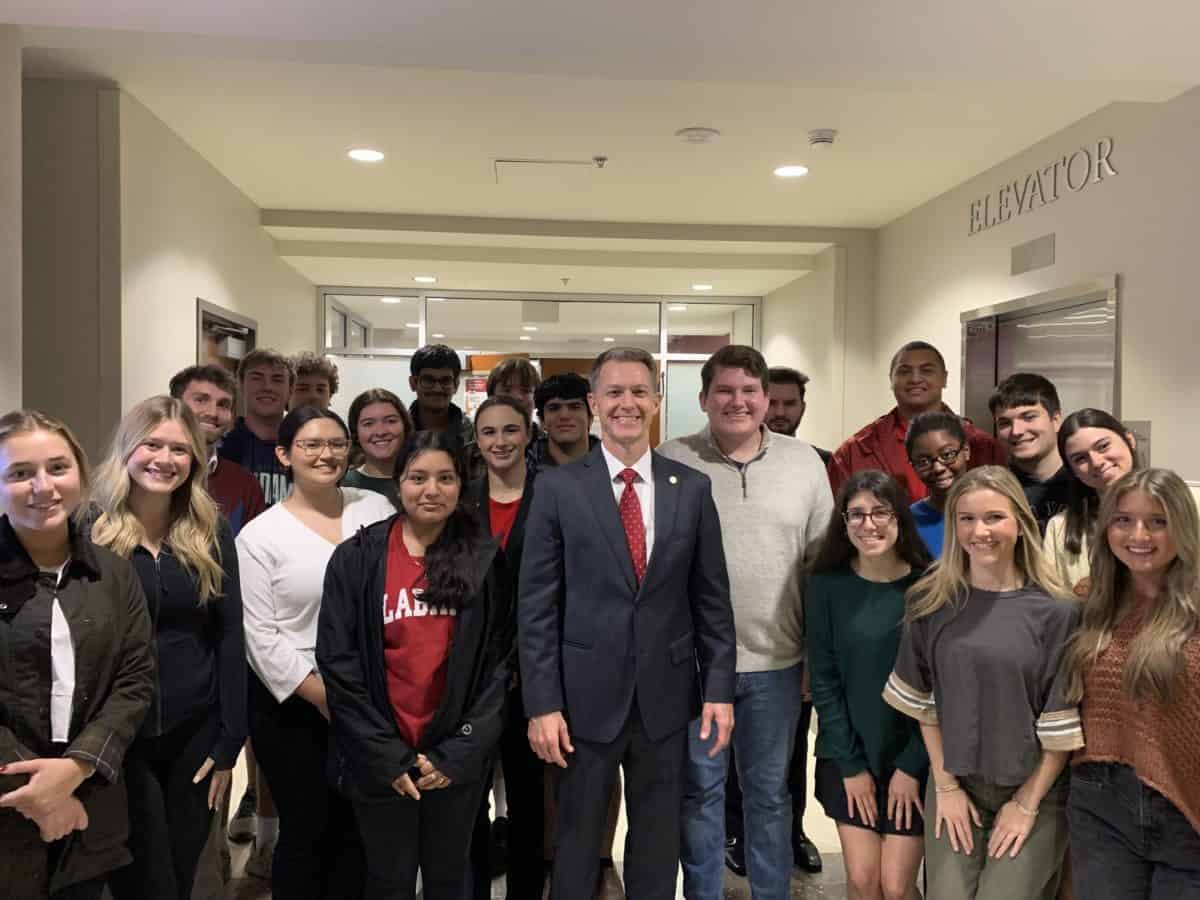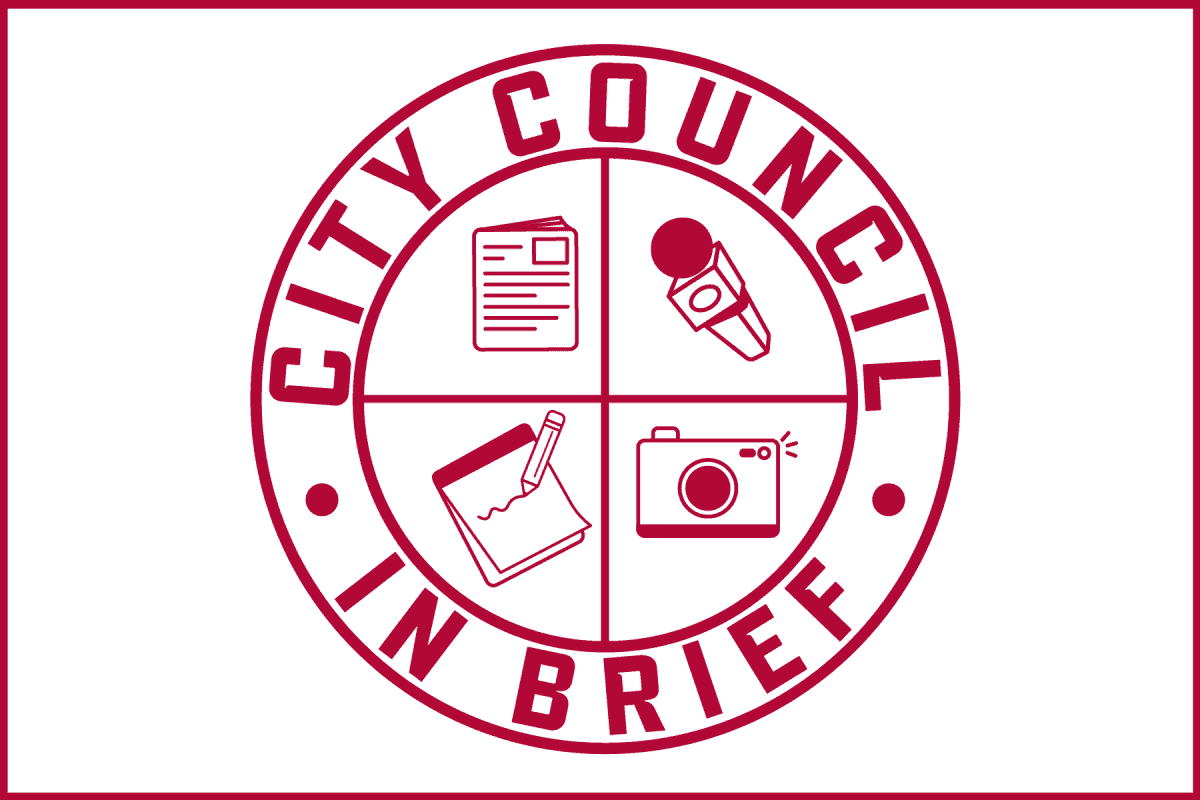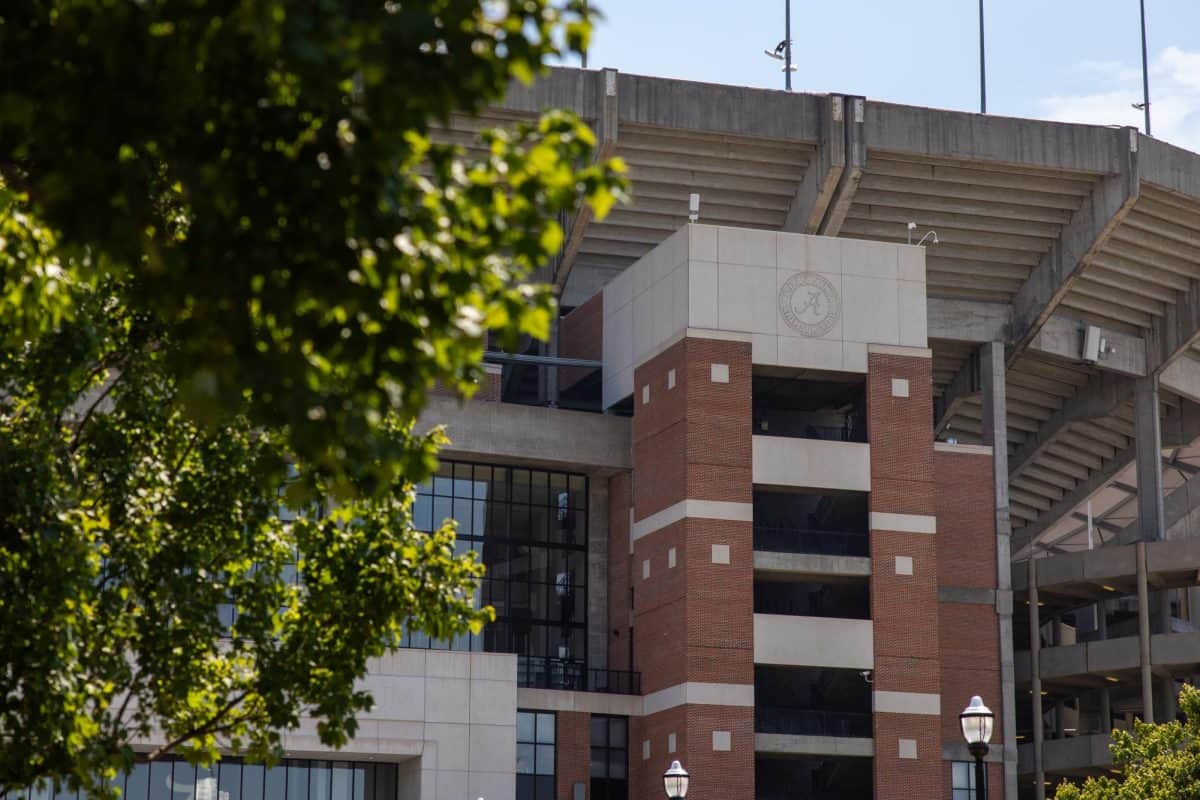Appearances are deceiving.
It’s a central tenet of the game of poker. In an activity fraught with misinformation and disguises, the less obvious route is always the best to take.
Maybe it’s not so usual, then, to see Shannon Shorr’s apartment. Shorr, a senior majoring in business management, lives at University Downs, with a collection of energy drinks in the corner, a wooden table to eat at and a Wal-Mart couch.
Shorr is comfortable here. The 24-year-old fits naturally in the collegiate environment, but said he is ready to have a degree to show his hard work.
“It means so much to me,” Shorr said. “I could never see myself not being a college graduate.”
But there is another world that Shorr has a place in, where fortune and ruin are precariously balanced on the turn of a playing card.
He is a professional poker player. A very good one, but in a region of the country where gamblers have a bad reputation, Shorr isn’t quick to volunteer the information.
“Just in general, I don’t tell people I play poker,” Shorr said. “There’s still a stigma associated with it. People think it’s like backroom, people getting their legs broken.”
For Shorr, like with many professional players who have reached the highest levels, the concept of gambling is foreign to him. The game is defined by the measurement of probability, odds and reads, requiring skill over pure chance.
“People don’t understand that what I do is investing more than gambling,” Shorr said. “I’m pushing value.”
Whereas the average college student is trying to scrape together beer money for a Saturday night party, Shorr is usually sitting at the online poker felt on a variety of sites, mostly Full Tilt and Pokerstars, slinging out buy-in prices up to $1,000 per online tournament. He estimates that on the weekend, his primary poker time while at school, he will enter as many as 60 tournaments in two days.
“I’ll pick up one of those $5 Hot N’ Ready pizzas from Little Caesar’s and just eat from it all day,” Shorr said with a chuckle.
Catching the bug
In the four years Shorr has played professionally, his winnings total nearly $3.5 million. He has sat at tables with the likes of Phil Ivey, Tony G, Phil Hellmuth and Daniel Negreanu. After check-raising a million-chip pot with six-high, Shorr said getting ready for an economics midterm isn’t nearly the chore it seemed before.
Shorr is a man of contradictions. Though gambling by nature is a risk-heavy trade, there are few colleagues who have been more frugal with their winnings. His living arrangements certainly don’t give an impression of wealth. In fact, there is just one splurge that Shorr has granted himself from his winnings.
“The most expensive thing I’ve bought is that [2004 Chevrolet] Tahoe,” Shorr said. “You don’t want to get to a point where you’re playing for your money instead of your hand.”
His start in poker was an unexpected occurrence. Shorr was still a high school student when the so-called poker boom was getting its start in 2003, as television technology began allowing the game to become a spectator sport. The Travel Channel was the impetus behind a series of Texas Hold ‘Em tournaments, the World Poker Tour, that started to captivate audiences across the country.
Shorr was not part of that demographic.
“I remember being a senior in high school looking for a [baseball] game, and I flipped to ESPN showing poker,” Shorr said. “I was like, ‘Oh my God, this is so boring.’”
After he came to the Capstone, Shorr got his exposure to the game at home games held by friends. Hooked instantly, he found Partypoker.com, one of many online sites sprouting up across the Internet that allowed players access to the game anywhere and everywhere.
Shorr took advantage, making a $50 deposit and quickly losing all of it. He deposited again and lost that. The vicious cycle continued, with Shorr estimating that he lost as much as $3,500 before turning into a winning player.
“I definitely thought at times that I should stop,” Shorr said. “But I figured I would eventually turn it around.”
Slowly and painfully, Shorr improved and learned to play winning poker. In 2006, at the ripe age of 19, he won several online satellites and qualified for a spot in the main event of one of the world’s top tournament series, the Crown Australian Poker Championship, commonly known as the Aussie Millions.
Shorr still remembers the hand that pushed him to the package for Australia. With the hit of an ace, Shorr quickly eliminated the final player and earned a trip to a world far beyond Tuscaloosa.
The civil engineering major had a difficult decision to make. With a time commitment of two weeks needed for the tournament, Shorr decided to drop out of the 2006 spring semester at Alabama. His parents, Scott and Debbie, trusted their son’s decisions.
“They were actually really supportive about it,” Shorr said. “Not a lot of people have parents who would be that way.”
Road trip
Having grown accustomed to online play, Shorr was now competing with 418 of the world’s top players in his first live venue. The Aussie Millions main event held a buy-in of $10,000, while Shorr’s entire poker bankroll consisted of $30,000.
Needless to say, there was a level of intimidation, especially when Shorr was relocated to a table featuring popular professional and World Poker Tour announcer Mike Sexton.
Once the cards were shuffled, however, all the trepidation and star-watching halted, and Shorr went straight back to what got him to Melbourne, Australia in the first place: consistently smart decisions at the right time.
With a $1.2 million top prize on the line, Shorr slowly built his stack, taking advantage of a combination of good hands, good luck and one very well timed bluff.
On the second day of competition, Shorr was in the midst of building his chips up and found himself in a difficult situation. Raising pre-flop, he found one caller. After his opponent checked the flop, Shorr raised the pot, only to be reraised. Holding ace-high, Shorr threw out another raise that was called. After his opponent called, Shorr fired another bullet on the turn, admitting that at that point he had put “quite a bit” of his stack in the middle.
Shorr still remembers the nerve-wracking minutes before his adversary dumped his hand.
“I can still feel how bad he made me sweat it,” Shorr said. “I still remember how hard my heart was beating.”
Shorr moved all the way to the final table of the tournament. Shorr busted out in fourth place, good for more than $270,000 and the start of a new life.
Shorr moved to Las Vegas and rented a house with several poker friends. His success continued in 2006, with two more cashes worth over $100,000, including a victory at the Bellagio Cup II Invitational worth just under $1 million.
With rolls of cash and a freewheeling life that seemed like it would never end, Shorr felt on top of the world, and officially withdrew from Alabama.
That’s when the trouble started. 2007 was a year of downswings for Shorr, the inevitable period of a poker player’s career where nothing goes right and money disappears in an instant. Shorr began dabbling in the dangerous arena of cash games, including $500 and $1,000 blind Pot-Limit Omaha Hold ‘Em.
“That was a tough year,” Shorr said. “I was chasing too much… making some dumb decisions and I really got stuck. I was down like $300,000 at one point.”
Shorr battled back to recover about two-thirds of his losses, but stress took a toll. He gained unhealthy weight and had the strain of a live-in girlfriend in Vegas. So Shorr reevaluated the role of poker in his life.
“I just felt empty,” Shorr said. “I was traveling around playing poker, but I wasn’t really doing anything.”
Shorr couldn’t help but reflect on the studies he had abandoned.
“I’ve always wanted to come back and finish school, so I was worried about that,” Shorr said. “I kept wondering when I would go back.”
Coming home
Shorr returned to Tuscaloosa in the fall 2008, reenrolling and cutting down on the amount he played. He also sought out the help of friend and fellow professional Eric Baldwin, the 2009 Cardplayer Magazine Player of the Year, who helped him revamp his tournament game.
“I was playing a style that worked in early ’06, but wasn’t working in 2007,” Shorr said.
His fortune improved, and the move back to Tuscaloosa combined with the cut-down schedule had much to do with it. Shorr said he stopped chasing bad opportunities and switched more focus back to online play while still playing extremely profitable live tournaments. One such event was a three-day swing at the Bellagio Cup where Shorr pocketed over $360,000 and finished 2008 up nearly $1 million.
Shorr said he has been spared the fate of many of his colleagues, who alternatively find themselves flush with cash and begging for backers without a penny to their name after losing everything at craps, blackjack and other “house” games at the casinos.
“At the risk of sounding arrogant, I feel like I’ve managed my career as well as anybody,” Shorr said. “I’ve just seen so many guys my age blow through [all their money] in Vegas because there’s so much to do there.”
Tucking away a large portion of his profits in mutual funds, and even a little bit of “dabbling with stocks and stuff,” Shorr said he has assured himself a level of comfortable financial security for whatever life may have in store for him.
“I’ll never go broke,” Shorr said, “unless the market just crashed tomorrow.”
He continues to make significant noise in some of the biggest tournaments in the world. Last year, Shorr made the final table of the $25,000 entry WPT Championship, finishing in fifth place and earning a $400,000 paycheck.
Not bad for a week’s worth of missed classes.
One thing that Shorr said he is certain about is the place that poker will continue to hold in his life: a fun way to earn a living, but something that will never become the infatuation of some more daring players who routinely risk absurd amounts of money in cash games.
“I want poker to be a small part of my life, actually,” Shorr said. “I love it, and it’s a nice way to make money, but I want to use the spare time it provides me to do all kinds of other things. I don’t know what yet.”








